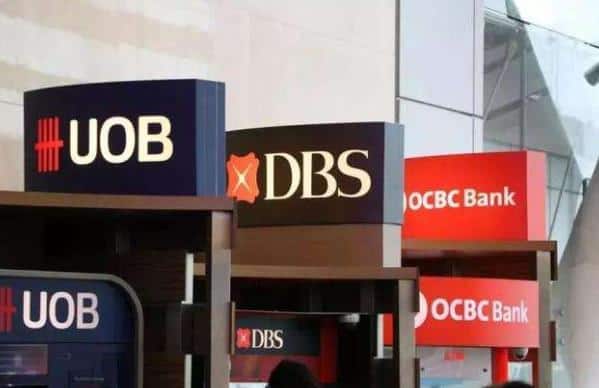All You Need to Know About Bank Account Opening in Singapore
Overview About The Banking Industry in Singapore
As a strategic financial center attracting foreign investment in the Asia Pacific region, Singapore states a stable foundation of a safe and transparent business environment. Specifically, the government’s supportive policies have paved the way for the participation of various brands in the banking scene.
Singapore has recorded the registrations of 6 local and 117 foreign banks with a high capital net worth and a dynamic-developing investment hub. In terms of backing up the solid banking industry, this country has facilitated overall success with the following factors:
- An open-minded domestic banking market
- Strong local banking groups with the activities of merging and acquisition
- Strict banking privacy laws and tax incentives
- Advanced banking services
- Supportive tailor-made solutions for Small and Medium enterprises
- Developed investment hub with a thriving and active capital market
Due to these advantages, Singapore has become one of the most attractive leading trading hubs with various opportunities. Additionally, it receives a high assessment of efficiency in protecting assets, with a total value of around S$1 trillion.

Types of Bank Accounts in Singapore
Based on Registered Individuals
Depending on your occupation status, whether you are a local or non-resident business owner, there are 4 bank account types among your range of choices:
- Personal bank account: used for managing individual funds and assets. Specifically, you can open this account to execute daily expenses and receive a salary.
- Corporate bank account: used for conducting business-level transactions. It is available for both Singapore-based and foreign companies.
- Non-resident bank account: used for those not intending to live in Singapore but operating the company remotely.
- Merchant bank account: used for conducting digital transactions. If you intend to operate an eCommerce company, you must open this account type.
Based on Customized Purposes
Based on your purposes, whether transacting or saving, you can choose one of the following account types to match your requirements:
Current account: a non-interest account suitable to create a convenient paying experience. You can utilize this type as a fund for regular spending, such as shopping and paying bills.
- Saving account: a low-interest account to safely save short-term funds for emergency purposes. With this type, you are facilitated with non-penalty withdrawal and convenient payment.
- Multi-currency account: releasing you from exchange cost when allowing you to hold various types of currency. This account is a well-suited solution for those who frequently transact with foreign currency.
- Fixed Deposit account: a high-interest account to grow money long-term. In case of investment uncertainty in a fluctuating economy, you can choose this account type as a well-adapted solution.

Comparisons Between Digital and Conventional Banks
Definition of Traditional and Digital Banks
Traditional banks refer to financial institutions dependent on providing services via physical branches. Regardless of the effort to innovate the online platform, most local-based banks still need the direct presence of customers to execute important services. Additionally, these types possess licenses as official banking entities without legal restrictions.
Meanwhile, digital banks surpass conventional ones in various advanced features relating to optimizing the customer experience. Specifically, this type provides a fully remote process and useful function integration into the software. Despite not being full-fledged banking institutions, digital banks are operated by licensed entities to provide professional services such as mobile banking, online account checking, and transferring.
Core Differences
Overall, digital banks differentiate from conventional ones in the registration methods (remote or physical meetings), service ranges, and account opening fees. Let’s look at the features summarized in the following table to compare the two bank types' differences.
| Traditional Banks | Digital Banks | |
|---|---|---|
| Remote account opening | ||
| No account fees | ||
| No minimum balance requirements | ||
| Multiple free checking accounts | ||
| Multiple virtual and physical debit cards | ||
| Payments and Deposits via ACH, wire, and check | ||
| Cash deposits | ||
| Secure role-based logins for multiple team members | Uncommon | |
| Direct integration with accounting software like XERO and Quickbook online | Uncommon | |
| Advanced account payable features | Uncommon | |
| Physical branches | Uncommon | |
| Credit cards | Common | Uncommon |
| Saving accounts | Uncommon |
Table: Comparison between traditional and digital banks
Explore The Top Prestigious Banks in Singapore
Number of Banks in Singapore
Due to an open-minded business environment with supportive government policies, Singapore attracts a large stream of foreign investment, especially in the banking industry. This country has witnessed the establishment of 6 local and 117 foreign banks. In terms of international ones include 53 wholesale banks, 42 merchant banks, 37 offshore banks, and 27 full banks.
Popular Banks
Local banks:
- DBS (Development Bank of Singapore): As a leading bank in Singapore and South East Asia, DBS possesses a large network of 80 branches to serve millions of customers. According to the Banker’s “Top 200 Asian Banks in 2008”, DBS secured a rank of 14th.
- OCBC (Oversea Chinese Banking Corporation): Since its founding in 1912, OCBC has proven its position in Singapore-Malaysia as one of the largest financial institutions.
- UOB (United Overseas Bank): Since its establishment in 1935, UOB has grown significantly in over 19 countries with 500 branches.
Foreign banks:
- Standard Chartered: As a prestigious multinational bank with 1000 branches over 59 markets, Standard Chartered has served foreign institutions with supportive services when incorporated in Singapore.
- HSBC (The Hongkong and Shanghai Banking Corporation): With a multi-year experience accessing high-growth countries, HSBC has served safe and transparent financial services to connect Singapore corporations with the global market.
- Maybank: As a Qualify Full Bank in Singapore, Maybank possesses full licenses of commercial entities with various financial services. According to statistics in June 2008, this bank managed total assets of S$22.7 billion.
- Citibank: As the first American-based bank branching in Singapore, Citibank has built a formidable foundation in the retail-banking sector.
- BNP Paribas: As a regional hub for Singapore corporations, BNP Paribas has been a trustworthy entity in providing banking services.

How to Open a Bank Account in Singapore in 2023?
Required Documents
Applying for a Singapore bank account requires various documents to verify owners' and businesses' information. The complete checklist of documents needed to prepare before bank account application includes:
- Linkedin Profiles/Resumes/ Write up of past working experience: Digital or physical profiles that summarize details of basic information and working experience
- Company Bizfile and Company Constitution: You will receive these documents after finishing the incorporation process:
- Company Bizfile refers to online business profiles that contain the registered entity's information
- Company Constitution specifies the internal management of a company
- Passports and Proof of Address of all shareholders/Directors (Notarized Copies): Proof of address includes a list of less-than 6-month physical documents such as utility bills, bank statements,...)
- Specimen signature of all signatories: A copy of your signature to ensure the legitimation of all your signed documents
- Know Your Client (KYC) Form: We will send you to fill in detailed business and personal information of directors/shareholders
The Bank Account Opening Process
The common process to open a bank account in Singapore includes:
- Choose an appropriate bank: G.O.C consultants will assist you in selecting suitable banks, whether conventional or digital, to suit your financial purposes.
- Conduct the application process: Our service will ask you to gather the required documents and represent your businesses to submit them to the chosen bank.
- Finalize the process and get your account ready: We will help you with the final steps, such as setting up video conferences or holding physical meetings, and send you confirmation documents after the approval of the banking staff.
G.O.C (Global Offshore Company) has built a large network of digital and traditional banks in Singapore to provide customers with the best banking services. Along with a fast and transparent process, we believe in establishing your business’s presence in a blink of an eye.
Disclaimer: This guide serves as a reference tool and should not substitute legal advice. For tailored guidance, consult G.O.C's customer services.








